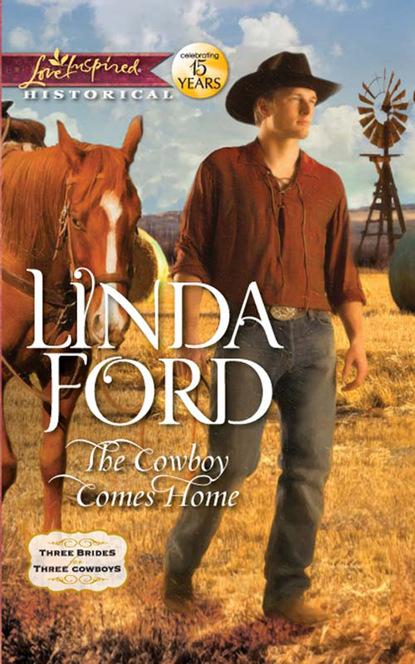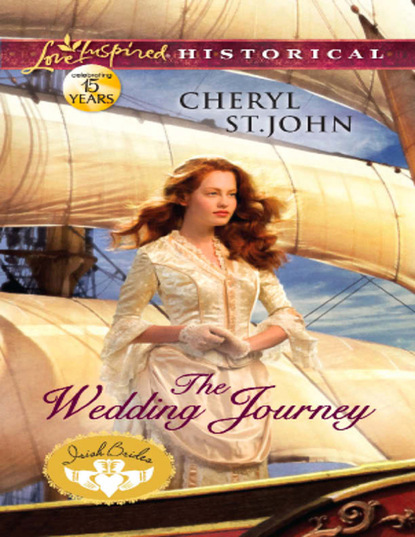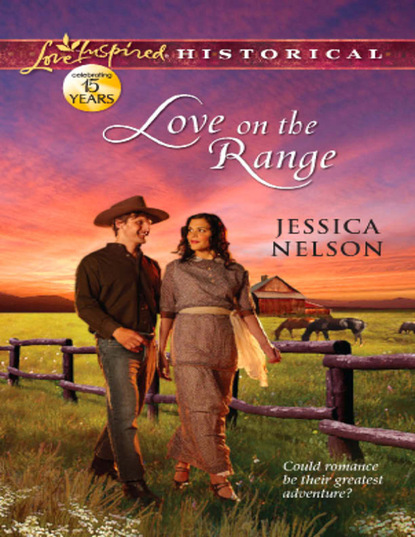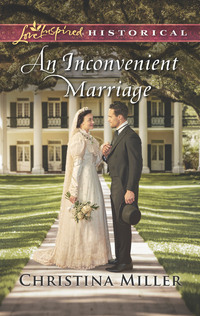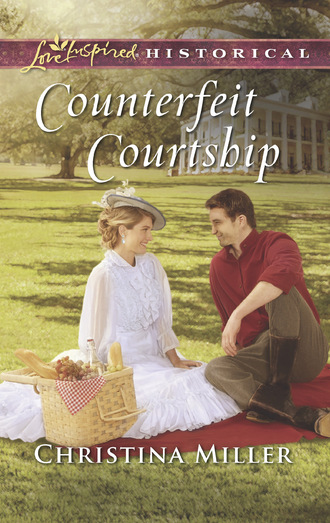
Полная версия
Counterfeit Courtship
And what of that cryptic note from Leonard Fitzwald? What could he possibly have to say to her that she didn’t already know? It was no secret that Uncle Amos owed Leonard’s father fifteen thousand dollars, due after this year’s harvest. She didn’t like the fact that they’d borrowed money from their broker. But they’d had little choice, and nearly every planter in the Natchez area, plus across the river in Louisiana, had to do the same.
Magnolia Grove had to do well this year. They couldn’t sustain another year like the past three. And with Uncle Amos laid up, Ellie had to make the ground profitable. If only she could be sure she could do it...
You can do anything you set your mind to.
Her mother’s voice drifted back to her from the past.
I married an Anderson, but remember that I am a Stanton, and therefore, so are you. Stanton women have pulled their families through Indian raids, fires, death and destruction. God may call you to hard things too, but you’ll come through, because you can do anything you set your mind to.
She twisted Mother’s pearl ring, the one Ellie had worn on her right hand ever since Mother placed it there on her last day on earth. Yes, her mother and grandmother had been strong, but it would take more than the Stanton backbone and the Anderson name to keep Magnolia Grove in the family this year.
The tall case clock chimed the quarter hour in Miss Ophelia’s center hall. Ellie glanced at her timepiece—a dainty little brooch from Uncle Amos last Christmas—and realized Graham had been gone nearly half an hour. Had Susanna or one of her friends cornered him? Did he need help escaping?
Just as she was about to go in and look for him, he strode out the jib window, open tonight to extend the dancing to the back gallery, and handed her a silver cup. “Just as I thought, everyone in Natchez has heard about us.”
Ellie turned from the view of the formal gardens and gazed into the crowded ballroom as the quartet transitioned to a sweet rendition of “Aura Lea.”
“Who are they gossiping about? You and me? Or you, Miss Noreen and Betsy?”
“All of us. We’re the talk of Natchez tonight.”
Susanna and a man Ellie didn’t know, dressed in a Confederate officer’s uniform, whirled across the brightly lit room, her emerald hoopskirts sweeping the expanse. The woman seemed to think it was her responsibility to dance with every former Confederate soldier at the party. Ellie had to admit it was nice to see a few gray uniforms again after two years of occupation by the Union army.
Susanna’s cloying smile turned to a frown as she caught Ellie’s gaze.
“She’s going to cause trouble.” Ellie kept her own smile intact until Susanna and her partner danced across the room and out of sight.
Graham’s grimace might have meant he thought any trouble Susanna could cause would be minor compared to Ellie’s plan.
She snatched his arm and pulled him closer to the gaslight to see his face better. “I know what that look meant. I’m doing only what you asked me to do—helping you get rid of the girls. They aren’t bothering you now, are they? Think what tonight would have been like if I hadn’t done as you asked.”
In the brighter light, his eyes blazed like the flame. “I shouldn’t have hung the distress flag. I should have camped out in the old hideout until the party was over.”
So much had happened that day, it seemed she had seen the signal last week rather than twelve hours ago. Just this morning, she’d had no idea Graham would come home, that she would enter a fabricated courtship with him, that a baby would enter her life—
“The baby... What did you learn about her this afternoon while I was out at Magnolia Grove?”
“For one thing, I found out why the baby is your namesake.” Graham swirled the punch in his cup as he used to when in deep thought. Then he looked up and met her gaze, the trace of an undefinable emotion in his eyes. “I didn’t know how much you did for Francine before she and Stuart got married and moved to Harrisonburg.”
Ellie sipped her punch, a little tart for her taste. “All I did was show kindness to her, a girl I liked, at a time when others in this town did not. She was a Ballard, and you know how most people in town viewed that family.”
“Outlaws, thieves, drunkards—but I think most of that was exaggerated. Your friendship apparently meant a lot to Francine. And I appreciate it too, for my stepbrother’s sake.” Graham tasted his punch, and then he swallowed another big gulp. “Want me to get rid of yours?”
After all these years, he remembered that she liked her punch as sweet as her coffee. “Don’t let Miss Ophelia find out.”
“This isn’t the first time I’ve rescued you from having to eat or drink something you didn’t like.” Moving nothing but his eyes, he scanned the gallery and gardens, then turned his back to the house and drank her sour punch as fast as if it were the best raspberry cordial. “Lilah May never knew that you didn’t eat a single pea the entire time you and your uncle stayed in town.”
She laughed at that. “Yes, I owe you for eating many a helping from my plate when no one was looking.”
Graham set both punch cups on the wrought iron table in the corner. “Noreen told me what happened when Stuart announced their engagement.”
“It was shameful. She was a good girl, no matter what kind of family she came from.” Ellie unfolded her fan and waved the effects of the humidity from her neck. “I don’t understand why Francine never let Miss Noreen know about the baby.”
“Francine’s father disowned her for what he thought was shameful behavior on her part. He thought Stuart, a man far above her station, was toying with her, using her for nefarious reasons. But he was wrong. According to Noreen, Stuart loved Francine and intended to marry her from the day they met.”
“That’s how I saw their relationship too. Francine lived by her Bible.”
“She was afraid her family would try to take Betsy from her if they knew about her. So she continued to run the store Stuart’s father left him, just as she had after he went to war. Harrisonburg is far enough away that no one in Natchez, including Noreen, found out she’d had a baby. I guess she never knew her father and brother were killed in the war.”
Poor Francine. To have found love, had a child and then lost that love—it had to have been the hardest thing imaginable.
The only thing worse was never to experience love at all...
Where had that thought come from? She pushed it away. Romantic love was not for Ellie. And here at this party, with the man who knew her better than anyone else, was not a safe place to explore such a notion. Family love was enough for her, and she had that with Uncle Amos and even Lilah May and Miss Noreen, in a way. And she could love Francine’s child like a niece. In fact, since Betsy was her namesake, she owed her as much love as she could give.
“Aura Lea” drew to a close, and Graham offered his arm. “Stroll in the garden?”
As they descended the stone stairs to the lawn, Ellie had to admit that the moonlight made him even more handsome, as every unattached female in the city had surely noticed tonight.
Since he seemed to want to talk of other things, Ellie decided to ask the question that had been nagging at her since he came home that afternoon. “Graham, why are you so opposed to spending time with a woman? I know Susanna isn’t your type, but Natchez, and especially the Pearl Street neighborhood, has lots of nice, pretty girls.”
She could feel the tension build in his arm—but why? “Did something happen during the war to make you leery of women?”
“If I tell you, will you promise not to think up a solution to the problem?”
Ellie had to laugh. “I promise.”
“A promise is a sacred thing.” His voice deepened, lowered to a near whisper.
She held her breath, waiting for what she sensed was close to his heart.
“I can’t marry. I can’t support a wife.”
“Graham, just because Ashland Place and Ammadelle are gone—”
“You don’t understand. None of those girls in there do either.” He gestured toward the brightly lit house. “It’s not just our plantations. I have no livelihood. I have no money. I’m not even a citizen anymore—of any country. I’ve lost everything.”
“Why are you not a citizen? I haven’t heard of that happening to any of our neighbors.”
He let out a noisy breath. “Andrew Johnson has decreed that all West Point graduates who served as officers of the Confederacy must apply individually for our pardons and the restoration of our citizenship. Since Father and I are both West Point men and served as colonels, we lost Ashland Place, Ammadelle—and everything else.”
The full moon revealed a fresh line between his eyes—a line that hadn’t been there before baby Betsy arrived that afternoon.
The baby. His orphaned niece. No wonder Graham’s worry showed on his face. He had a child to support now, and no way of doing so.
And Ellie’s fear of marriage—fear that a husband would fail to provide for her as her father had failed—had driven him to West Point all those years ago. That meant she was to blame for Graham’s dilemma. The thought made her weak, and she eased herself to the iron bench next to them.
But she couldn’t let him find out about that. She blurted the first thing that came to her mind. “Well, that’s what you get for going to a Yankee military school. You should have gone to Charleston—to the Citadel.”
“Here we go with that again. Do you know that, at the time, I heard those words from everybody in town except Father and Noreen?” He sat beside her, keeping a good distance between them. “But that’s why I can’t marry. I have nothing. If our town house didn’t belong to Noreen from her first marriage, I wouldn’t have a place to live.”
Graham gazed off into the distance, in the direction of Ashland Place. “I can’t buy or sell property. I can’t vote or run for public office. My military career is over, my plantation is confiscated, as is Father’s, and I have no other skills. Everything is gone. And now I have Noreen and a baby niece to care for. There’s no room in my life for a wife.”
And it was her fault. Above all else, she had to help him somehow... “Listen to my idea. I think it will work. I can keep those girls away.”
He let out a moan that must have come from his toes.
“Let’s continue the courtship arrangement. It would help me too. Dozens of discharged soldiers are coming back to town, and they’re at my door every day, wanting to court me.”
“Why don’t you let them?”
“Well, just as you can’t marry, I won’t.”
“Why not?”
“My reasons don’t matter. Let’s keep up the courtship ruse in order to discourage each other’s would-be suitors and belles. But we have to promise to remain friends—nothing more.”
He paused so long, she was sure he would say no. Then he took her hand and leaned in close. “I’ll have to think about this. Something about making up a courtship doesn’t feel quite right to me.”
“But you’ll consider it?”
“I’ll consider it. And I promise to remain just friends with you. That suits me fine.”
She should have felt relief, knowing Graham wouldn’t attempt a true courtship again. But something in his tone made her wonder, for the first time, if maybe her great ideas weren’t so great after all.
The thought startled her as much as the rustling of leaves directly behind her.
She spun in the direction of the sound and faced a uniformed man, his left eye covered with a black patch and a scar across his left cheekbone. Ellie sucked in her breath. In the flickering gaslight, his gaunt face and form looked as if he had come back from the grave.
“Ellie,” he rasped, reaching for her hand. “I’m glad I lived to see you again.”
She instinctively pulled back from him. Then recognition hit her like shrapnel. “Leonard Fitzwald...”
Chapter Four
Graham’s fists clenched at his sides as his memories of this man brought out every fight instinct he’d developed during four years at war. Of all the men he would have expected to die of sheer cowardice on the battlefield, Leonard Fitzwald would have topped the list.
“I trust you received my letter,” Fitzwald said, his wheezy voice sounding like an eighty-year-old man’s.
This weasel had dared to communicate with Ellie? The thought ignited a searing flame deep in Graham’s gut. Fitzwald had no right to correspond with any decent woman. “Why did you send Miss Anderson a letter?”
Fitzwald took a half step back and ran his finger over the edge of the eye patch. “Business. With the potential of a social visit afterward.”
“You’re mistaken, Fitzwald. You’re not visiting Miss Anderson, and you’re going to do your business now, in front of me.” He looked the man over. The Confederate uniform on his back did nothing to make him look like a soldier. “And no more letters.”
“Graham!”
He was aware of Ellie’s high-pitched voice, but all he could see in his mind was Leonard Fitzwald calling on Ellie in the months before Graham laid his heart at her feet. “I know things about this man that you don’t know, Ellie. You have to trust me.”
“Colonel, let it go.” The weasel turned to her. “I’ll call at your house Friday at eight, as planned.”
“Stay away from her, Fitzwald. I haven’t forgotten how to fight.”
Ellie wouldn’t know he wasn’t talking about the war. Her gaze snapped from Graham to Fitzwald and back again, her mouth open as if she didn’t know what to say or whom to say it to.
But Fitzwald remembered the incident Graham referred to. He could see it in the man’s weasel eye.
“Tell me your business now, Leonard,” Ellie said, her voice quivering a bit. “Graham is an old friend, and you can trust him with whatever you have to say.”
“Fine way to treat a veteran.”
He had to be joking. “You’re no veteran. You’re a coward—at home and at war. I know what you did at Antietam.” So did every Confederate from colonel on up. The story had spread fast—how Fitzwald had crumpled on the battlefield, whimpering like a baby crying for its mama. Even Betsy didn’t act that way. Only Fitzwald’s father’s money and political influence had gotten him a desk job instead of the firing squad.
“Let him speak his mind,” Ellie whispered, still the peacemaker.
Graham let out his breath with a low growl. He crossed his arms in front of himself and waited.
The weasel drew himself up to his full height. “I’ve inherited my father’s property and investments. Ellie, your uncle—”
“Call her Miss Anderson.”
Fitzwald glared at him as if he was a Yankee. “Ellie’s uncle owed my father thirty thousand dollars. The loan comes due two weeks from today.”
“Two weeks?” Ellie’s voice turned shrill. “That’s not true. Uncle Amos was careful to set the due date a month after harvest. And he owes fifteen thousand, not thirty.”
“That was before he took out a second loan and attached it to the first. If you doubt my word, I can arrange a meeting with my lawyer.”
Graham had had enough of this. “Fitzwald, it’s time for you to go home.”
“My attorney will come with me on Friday.”
As the weasel retreated into the darkness beyond the gas lamps, Graham sat down again and motioned for Ellie to join him. The bench that had seemed inviting and comfortable minutes ago now felt rigid under his still-tense body. He took a few deep breaths in hopes of calming his jangling nerves and slowing his heartbeat.
Ellie eased onto the bench beside him, keeping as much distance as her hoops allowed. “Why are men as hateful as Robert Fitzwald allowed to have children?”
“I’ve wondered that for years.” After Fitzwald’s shocking news, it probably would have been appropriate to comfort her in some way. But wouldn’t that add to the awkwardness already surrounding them every time they were together? He scooted a little closer to the end of the wrought iron bench and away from her, but that felt strange too, so he reached over and patted her hand. But that only made his discomfort worse. He’d better just talk and not touch. “Noreen told me about your uncle’s illness. I was sorry to hear about it, but now I’m even sorrier. You shouldn’t have to deal with Fitzwald’s buffoonery.”
“It’s part of doing business. But I’d be glad to hand this over to Uncle Amos if he was able.” She glanced to the right and the left, and then she leaned toward him. “He had a stroke of apoplexy when he heard Lee surrendered to Grant. He refuses to get out of his bed. I think he could, with help, but he’s so melancholy, all he wants to do is lie there.”
That news was the biggest surprise he’d had since coming home. Seeing her downcast eyes and the way she bit her lower lip, he thought it might be best to change the subject. Courtship was one thing, but he had no idea how to deal with a crying woman. “Do you think there’s any truth to Fitzwald’s story?”
“None at all.”
“Good. Then he’ll have no reason to continue bothering us.”
He had barely rested his hand back on his thigh when the sound of chattering females once again assaulted his ears. What now? He turned toward the offensive noise. The full moon revealed a bevy of hoopskirts and curls flouncing down the stone steps toward them. He wasn’t sure, but they may have added a girl or two to the original pack.
He stood as dark-haired Susanna led the girls to the bench, although he would rather have hidden behind the giant live oak to their left.
“Colonel Talbot, Miss Ophelia requests your presence in the ballroom.” Susanna eyed them in the moon’s shadowy light. “I won’t apologize for intruding, because it doesn’t look as if we interrupted much of anything.”
She was probably right. Ellie had kept a rigid distance from him and, other than the moment he’d made his friendship-only promise to her, he’d done the same. Anyone watching would have thought they were cousins or siblings, not a courting couple.
This charade wasn’t going to work—not with Susanna around.
Ellie rose with as much dignity as he’d once seen in Mary Custis Lee. “Please tell Miss Ophelia that we will be in momentarily.”
Susanna stood speechless for a moment, which was almost as much of a surprise as Ellie’s sudden poise. The silence didn’t last long, though. “You’d better do as she says.”
Graham rested his hand on the waist of his “intended.” “As Ellie said, we’ll be along. Please give us a moment alone.”
“If you’re brave enough to defy Miss Ophelia, that’s your business. And I still say this is the most peculiar courtship I’ve ever seen.” The leader of the gang glared at Ellie for a moment and then stalked away, her troops following her as always. Apparently, his colonel voice worked better on Susanna than it did on Ellie.
As soon as they were out of earshot, Graham leaned in close to whisper. “I’m sorry you have to endure this party after receiving such upsetting news from Fitzwald. Would you like me to take you home?”
“No, because I don’t think he’s telling the truth. I’m not going to give this any more serious thought until I’ve had time to find out. And I won’t run out on Miss Ophelia now that we’re here.” Ellie began to pace the path in front of the bench as if in deep thought. Finally she stopped and faced him. “But one thing we have to think about is our arrangement. Susanna could make a lot of trouble, so we have to be more careful. Even when we think nobody’s around, people could be watching us.”
“That’s another reason I didn’t want to fabricate a courtship.”
“We can do it. We have to. If we stop now, neither of us will be able to turn around without enduring a marriage proposal.”
He had to laugh. “You’re the only one who has to worry about that.”
“Don’t be too sure Susanna Martin won’t try to make you propose.”
The thought turned his insides cold. Ellie was right.
“Here’s what we’ll do...”
The chill in his gut now turned to fire. How did this woman manage to keep him in such turmoil? Was this what life was going to be from now on?
No, it was not. She’d helped him out of a jam, that much was true, but it didn’t mean she could control him. He’d been a colonel in the Confederate army, commanding thousands of men, and no woman was going to give him orders.
Especially this woman...
“Whatever your new idea is, you can forget it. I’ll think of something.”
She smiled that smile that used to keep him awake at night—sweet, effortless, with a hint of amusement, as if she was going to let him talk his own neck into a noose. “That’s fine, Graham. What do you want to do?”
“Easy. We’re going to stop this nonsense.”
“How are we going to do that?”
“We’ll go into that ballroom and...” And what? Announce that they weren’t courting after all? While that seemed like a good solution, common sense told him it would make a laughingstock of Ellie. He studied her eyes in the moonlight—clear, unselfish, innocent eyes. Eyes that had kept watch over him in childhood and still looked after him today. Eyes that saw right through him to the man he was inside. Could he do that to her, offend her this way? No Southern gentleman would treat a woman in such a fashion. He looked over her head, to the east, toward Ashland Place.
“What’s your plan?” He ground out the words between clenched teeth.
Ellie took his arm and snuggled against him in a most convincing manner. “To go into the ballroom like a couple in love and let Miss Ophelia draw her own conclusions. She probably wants to honor your service to the Glorious Confederacy, so let her do that. Then just act natural and she’ll spread the word that we’re courting. But you have to make it look more realistic than you are now, or nobody older than little Betsy will believe it.”
At once he realized they’d been ambling back up to the gallery. “Courting doesn’t come naturally to me. I don’t know what to do.”
“Nobody here knows that. Just do as I do.”
Now how in blue blazes did Ellie know how to act “in love”? She’d never treated him like that, and according to Noreen this afternoon, she’d not courted with anyone in all the years he’d been gone.
But as they climbed the steps to the gallery and the gaslight there shone on her face, he saw that she did, indeed, know how to look that way. Those big blue eyes of hers, gazing at him like liquid love—he cleared his throat and swallowed hard to get rid of the lump that somehow formed there.
“That’s it!” Her lowered voice brightened with enthusiasm as they stepped through the window. “Now you look the part.”
Somehow, that didn’t make Graham feel any better. Pretending to be in love with the girl who had once ripped out his heart and then stepped on it—he couldn’t go along with it. “Ellie, we have to talk about this. I can’t— I won’t—”
Ellie’s adoring look vanished for an instant as something like an ache etched itself between her eyes.
She must have thought he found something distasteful about her.
How far from the truth that was. What Southern gentleman went about hurting women that way? And why did this whole situation have to be so complicated?
Holding in the groan that wanted to escape from his gut, Graham clenched his jaw and stepped aside to allow her to enter his aunt’s home. If Ellie and Susanna were right, their friends had many more events planned for him in the near future, and he had to learn to deal with that. He’d give it some thought when he was alone.
If he ever made it out of this house and away from this party.
* * *
Graham wanted to talk about the courtship ruse? Ellie was thinking the exact same thing. It wasn’t going to work unless he agreed to it with his whole heart.
The poor man. Ellie released his slightly trembling arm and stepped through the jib window and into Miss Ophelia’s home. He hadn’t seemed this uncomfortable even at their first “grown-up” party at Susanna’s house years ago. What could frighten this war hero so much—the party itself or the thought of an imaginary courtship with her?
“Colonel Talbot!” Miss Ophelia called in her exaggerated, singsong voice. She sailed across the vaulted-ceilinged ballroom toward them, wearing more yellow ruffles and bows and longer ringlets of red hair than even the debutantes had. Of course, Ellie would never have expected Miss Ophelia to wear mourning clothes for more than six months. And, being Ophelia Prescott Talbot Adams, she got away with it in Natchez.


